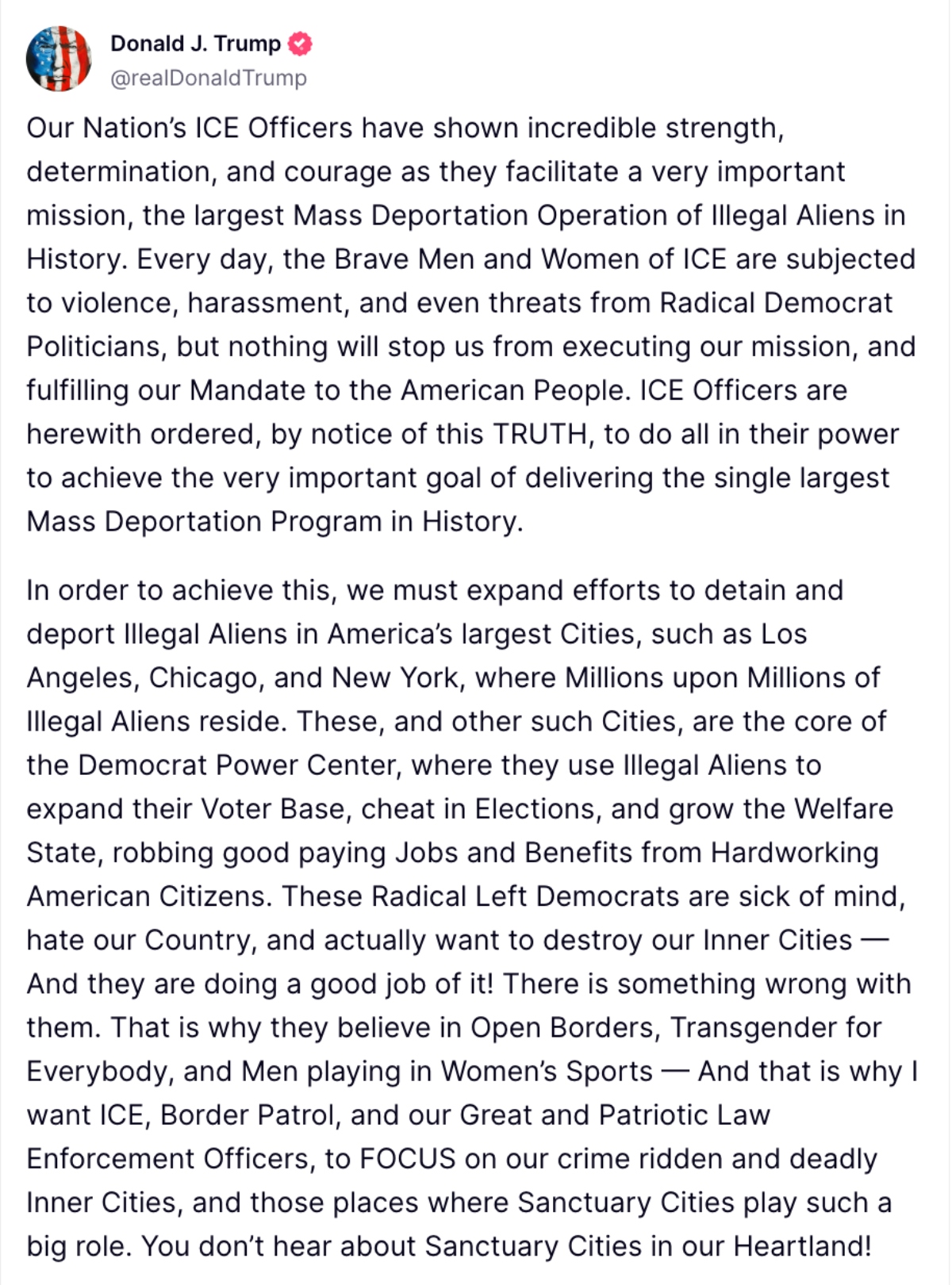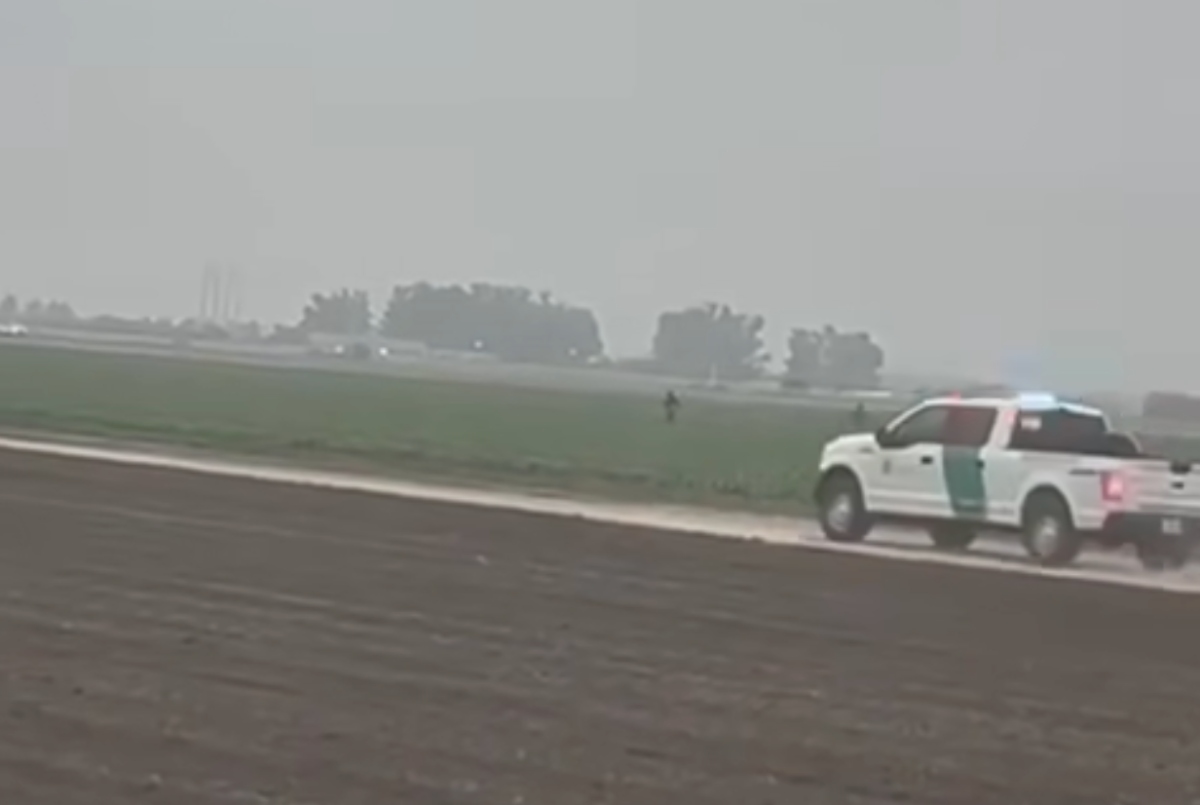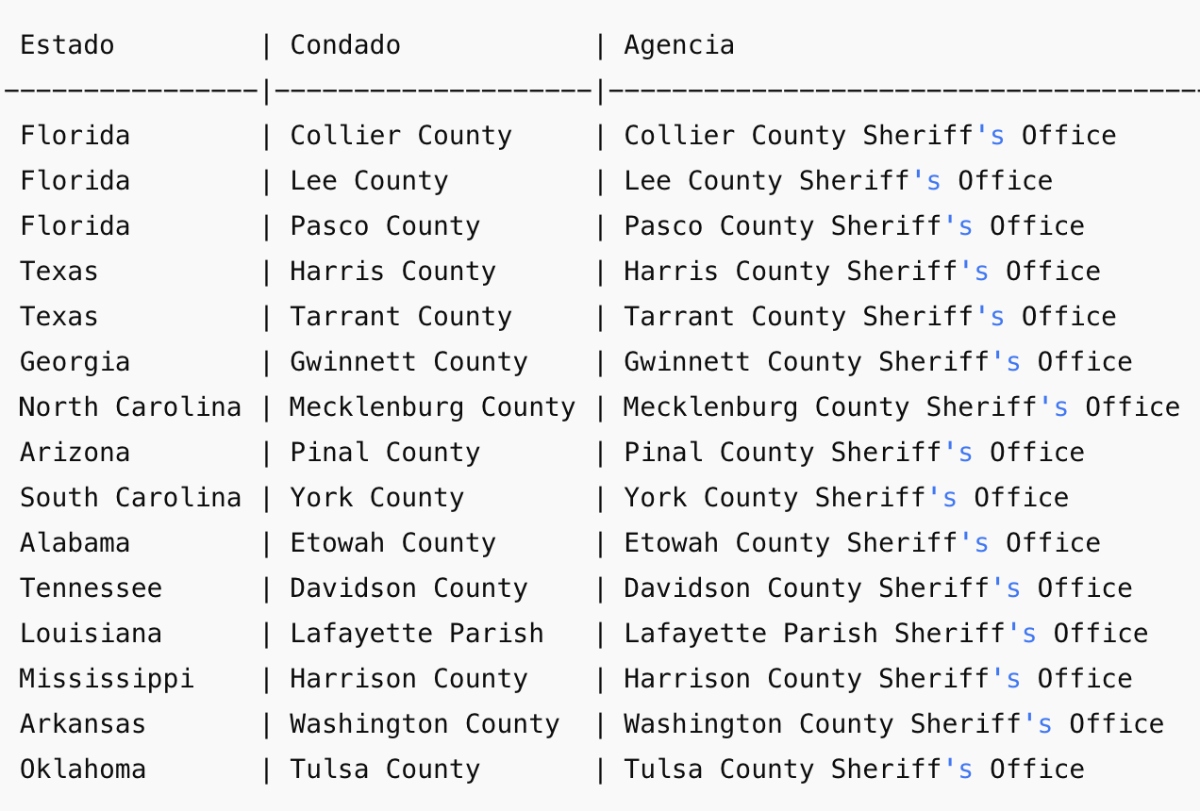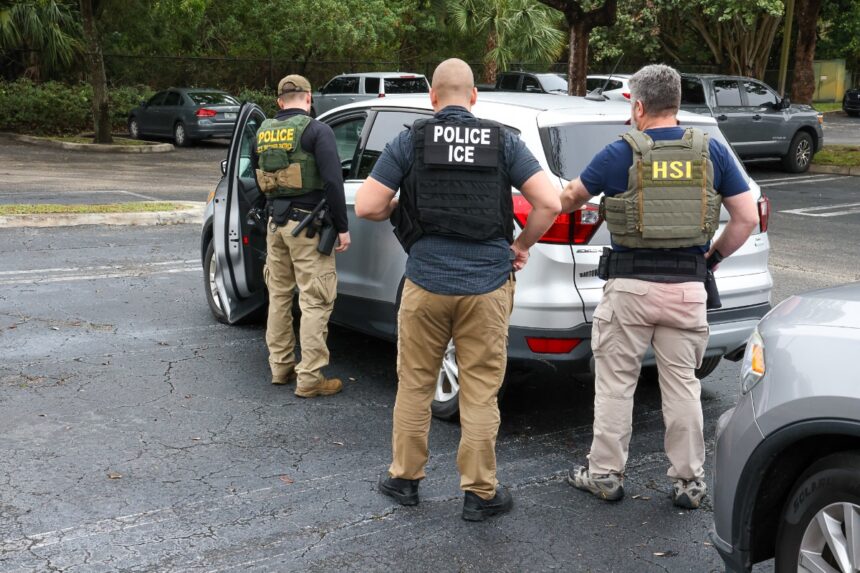Amid a new federal offensive to increase detentions and deportations in cities run by Democrats, President Donald Trump’s administration has revitalized the use of the 287(g) program, a legal tool that allows local police agencies to collaborate directly with ICE (Immigration and Customs Enforcement).
According to official data published by USA Today, more than 600 state and local agencies have already signed agreements with ICE to implement this program. As of early June 2025, there were 629 active agreements nationwide. Florida leads the list with 43% of the collaborations, followed by Texas with 14%.
What is the 287(g) program?

This expansion follows President Trump ‘s public call on June 15, when he posted on his Truth Social network that he had ordered ICE to “intensify deportation operations in cities such as Los Angeles, Chicago and New York,” all governed by Democrats.
Authorized since 1996 under the Illegal Immigration Reform Act, the 287(g) program allows state and local officers to act as immigration agents in certain contexts, always under ICE supervision.
There are currently three operational models:
Jail Enforcement Model: Allows for the identification and processing of undocumented immigrants with criminal charges, detained in local jails.
Task Force Model: Local officers act with limited immigration authority during their normal duties. At least 40 hours of training is required.
Warrant Service Officer Program: Authorizes local officers to serve and execute administrative warrants issued by ICE inside jails.
California and other states with protection laws

Despite this national trend, California, New Jersey, Oregon, Illinois, New York and Washington have state laws that explicitly prohibit local police from collaborating with ICE.
This includes immigration-related arrests or interrogations.
In California, this measure is known as the California Values Act, effective since 2018.
However, these laws do not prevent ICE from acting on its own in those states.
The difference is that local agencies are not required to cooperate, which limits the scope of the raids.
Criticism and growing concerns

The 287(g) program has been strongly criticized by civil rights advocates and immigrant communities.
Reports by the American Immigration Council and ProPublica document cases where the program has generated racial profiling, fear among crime victims who prefer not to report for fear of deportation, and constitutional violations.
An internal Department of Homeland Security report in 2018 and a Government Accountability Office (GAO) report in 2021 concluded that ICE does not adequately oversee local agencies or establish clear performance metrics.
In addition, Department of Justice investigations documented systematic civil rights violations in North Carolina and Arizona under this program.
How do you know if your city or county cooperates with ICE?

To find out if your city or county has an active agreement with ICE under the 287(g) program, you can consult the official list published by the federal government on the ICE website.
You can also search for interactive tools published by media such as USA Today to filter by city.
Knowing this information is key to protecting yourself and knowing who to ask for help in case of raids.
California, New Jersey, Oregon, Illinois, New York, and Washington have state laws that explicitly prohibit local police from collaborating with ICE























